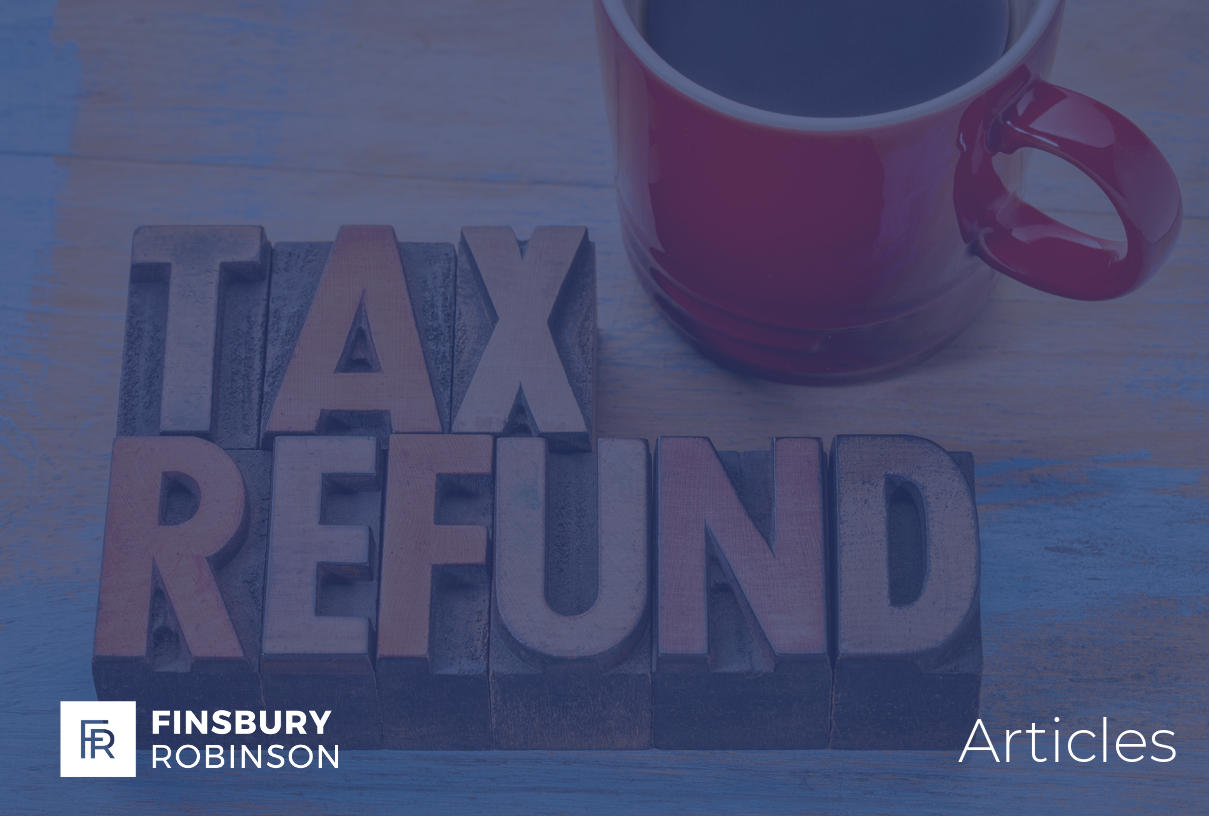Every so often, for whatever reason, people become entitled to a tax refund. This is usually because they have paid too much tax or it may be because they have put in a revised claim for allowances or reliefs that reduces the size of their tax bill.
You have to submit your self-assessment tax return first before claiming any refund that you think you may be due. If you are due a refund you will get a message on HMRC’s website. Overpaid tax for up to the past four tax years can be claimed. If the overpaid tax was due to being on the wrong tax code, HMRC should correct it on request.
What can you get a tax refund on?
A tax refund can be in respect of any income on which tax has been paid. This could be:
• pay from current or previous work;
• pension payments;
• annuity income;
• a redundancy payment;
• a self-assessment tax return;
• interest from savings;
• foreign income;
• UK income for people who live abroad;
• job expenses.
How long will a refund take to process?
There is no single answer to this. It can take as little as five working days; however, some taxpayers have been facing very considerable delays, especially relating to PAYE and the Construction Industry Scheme. A Guardian report found that some individuals and businesses have had to wait more than four months for a refund Read Here
Refunds and PAYE
If you have paid out of your own pocket for work-related expenses and your employer has not reimbursed you for these, you should be able to get tax relief on these costs. However, any expense must have been incurred ‘wholly, exclusively, and necessarily’ for your work.
Typical expenses an employee can claim for include:
• work-related travel excluding commuting;
• buying uniforms and work clothes, including repair and cleaning expenses;
• tools and equipment;
• professional fees and subscriptions;
• training and education;
• work-related phone and internet costs.
The size of your rebate depends on your marginal tax rate (the highest rate that you pay), so an employee paying higher rate tax will get a 40% rebate whereas one on basic rate would get 20%.
Claiming a refund
HMRC sends out P800 forms to people due a refund. They then claim using their HMRC self-assessment account. People without a P800 can contact HMRC directly. Generally, people will receive their rebates into their bank accounts but HMRC will send out cheques to those for whom it does not have account details.
The possibility of obtaining a refund is a good reason for submitting your tax return as soon as you can after the end of the tax year. Furthermore, your payments on account will be correctly calculated by HMRC. This is particularly important if you expect your income in the current tax year to be lower than in the previous one, which HMRC will use as the basis for working out your payments on account.
If you are due to pay tax in the next 45 days expect HMRC to deduct overpaid tax from the next bill rather than give you a refund.
Leaving the UK
If you leave Britain part-way through a tax year you may well be entitled to a tax refund particularly if you are departing early in the tax year as your earnings may not have exceeded your personal allowance.
To be eligible for a refund you need to work overseas for at least one full tax year. The claim is made by means of form P85, which can be submitted online or by post.
Tax codes
The standard tax code is 1257L, the digits referring to the standard £12,570 personal allowance of annual tax-free income. People’s actual code may be different. For example, if they claim for home working expenses, their code will be a larger number, reflecting that they do not have to pay income tax on the part of their earnings that goes towards maintaining their workspace.
Overpayment relief
Past years’ tax returns cannot be amended online in the way that current ones can be. In this situation taxpayers have to submit an overpayment relief claim to HMRC, which they can do by post or online.
Help with getting a tax refund
While a tax refund is always welcome, it is a sign that you have overpaid tax. This is likely to be because you have not filled out your self-assessment tax return correctly or have not made full use of the allowances and reliefs that are available. Overpaying tax is one of the risks of people doing their returns themselves rather than giving the job to an accountant. Getting your self assessment done correctly can save much more than the cost of the accountant’s fee, and these savings roll on year after year.
If you think you are paying more tax than you should be or would like advice about claiming reliefs and allowances – or on any other tax or business matter – please contact Finsbury Robinson. We can also help people who have received an enquiry from HMRC about their tax return.
We are a full-service tax, accountancy and business advisory firm, and our friendly and highly experienced team is available on 020 8858 4303 or via email at info@finsburyrobinson.co.uk



















